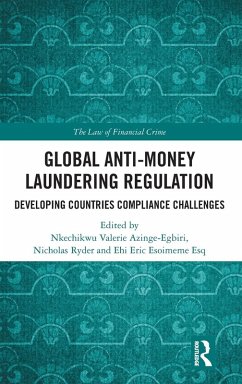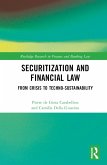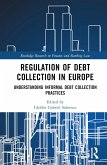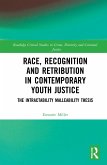Global Anti-Money Laundering Regulation
Developing Countries Compliance Challenges
Herausgeber: Azinge-Egbiri, Nkechikwu; Esoimeme, Ehi Eric; Ryder, Nicholas
Global Anti-Money Laundering Regulation
Developing Countries Compliance Challenges
Herausgeber: Azinge-Egbiri, Nkechikwu; Esoimeme, Ehi Eric; Ryder, Nicholas
- Gebundenes Buch
- Merkliste
- Auf die Merkliste
- Bewerten Bewerten
- Teilen
- Produkt teilen
- Produkterinnerung
- Produkterinnerung
This book explores the politics of money laundering and terrorist financing regulation in several countries across Africa and the Small Island States. It advocates for a comprehensive understanding of the nuanced compliance challenges of developing countries and proposes practical solutions to address them.
Andere Kunden interessierten sich auch für
![Competition Law and Financial Crime Competition Law and Financial Crime]() Diana JohnsonCompetition Law and Financial Crime172,99 €
Diana JohnsonCompetition Law and Financial Crime172,99 €![The Law of Securitisations The Law of Securitisations]() Pierre de Gioia CarabelleseThe Law of Securitisations157,99 €
Pierre de Gioia CarabelleseThe Law of Securitisations157,99 €![Competition Law in China and the EU Competition Law in China and the EU]() Xingyu YanCompetition Law in China and the EU172,99 €
Xingyu YanCompetition Law in China and the EU172,99 €![Regulation of Debt Collection in Europe Regulation of Debt Collection in Europe]() Regulation of Debt Collection in Europe153,99 €
Regulation of Debt Collection in Europe153,99 €![Critical Company Law Critical Company Law]() Lorraine TalbotCritical Company Law180,99 €
Lorraine TalbotCritical Company Law180,99 €![Race, Recognition and Retribution in Contemporary Youth Justice Race, Recognition and Retribution in Contemporary Youth Justice]() Esmorie MillerRace, Recognition and Retribution in Contemporary Youth Justice170,99 €
Esmorie MillerRace, Recognition and Retribution in Contemporary Youth Justice170,99 €![The Norwegian Prison System The Norwegian Prison System]() Are HøidalThe Norwegian Prison System152,99 €
Are HøidalThe Norwegian Prison System152,99 €-
-
-
This book explores the politics of money laundering and terrorist financing regulation in several countries across Africa and the Small Island States. It advocates for a comprehensive understanding of the nuanced compliance challenges of developing countries and proposes practical solutions to address them.
Produktdetails
- Produktdetails
- Verlag: Taylor & Francis
- Seitenzahl: 310
- Erscheinungstermin: 25. November 2024
- Englisch
- Abmessung: 234mm x 156mm x 19mm
- Gewicht: 644g
- ISBN-13: 9781032182889
- ISBN-10: 1032182881
- Artikelnr.: 71237869
- Herstellerkennzeichnung
- Libri GmbH
- Europaallee 1
- 36244 Bad Hersfeld
- gpsr@libri.de
- Verlag: Taylor & Francis
- Seitenzahl: 310
- Erscheinungstermin: 25. November 2024
- Englisch
- Abmessung: 234mm x 156mm x 19mm
- Gewicht: 644g
- ISBN-13: 9781032182889
- ISBN-10: 1032182881
- Artikelnr.: 71237869
- Herstellerkennzeichnung
- Libri GmbH
- Europaallee 1
- 36244 Bad Hersfeld
- gpsr@libri.de
Nkechikwu Valerie Azinge-Egbiri is Lecturer in Business and Commercial Law at Lancaster University, England. Nicholas Ryder is Professor in Financial Crime at the School of Law and Politics, Cardiff University, UK. Ehi Eric Esoimeme Esq. is Professor of Business Law and Ethics at James Hope University, Lagos, Nigeria; Rudolph Kwanue University College, Liberia; and Kennedy University of Baptist, United States.
1. The Challenges of the Global Anti-Money Laundering and Counter-Terrorist
Financing (AML/CFT) Regime for Developing Countries; 2. Uncovering
Conflicts and Ambiguities In the International Anti-Money Laundering Regime
Vis-à-vis African Countries; 3. GIABA: Combatting Money
Laundering/Terrorism Financing in West Africa; 4. Do Things Fall Apart?
(Black)listing and Its Implications for Developing Countries; 5. The
mis-implementation of anti-money laundering laws and regulations: A
high-level review with specific focus on the unilateral termination of
customers' bank accounts in South Africa; 6. Implications of Botswana's
Legal Culture in the Implementation of the AML/CFT Regime and Prosecution
of Money Laundering/ Financial Crimes; 7. Barriers To Implementing New
Technologies for AML/CFT Functions: The Case of Nigeria; 8. Challenges to
AML Compliance Within Nigerian Financial Institutions; 0. The Challenge of
Money Laundering by Nigeria PEPs: Beyond the Transplantation of FATF
Standards; 10. The Vulnerability Of Politically Exposed Persons (PEPs) In
Africa: Towards Transparency In Beneficial Ownership; 11. Can FATF's Focus
on Beneficial Ownership Aid Anti-Corruption Efforts in a 'Low-Capacity'
Country? Challenges From the Front Line in Nigeria; 12. Suspect Wealth and
the Compliance Willingness of Small States; 13. Combatting Terrorist
Financing: A War Developing Countries Cannot Win?; 14. Asset recovery in
developing countries: Assessing successes and failures and overcoming
challenges; 15. Strategic Tools for Amplified AML/CFT Compliance in
Developing Countries
Financing (AML/CFT) Regime for Developing Countries; 2. Uncovering
Conflicts and Ambiguities In the International Anti-Money Laundering Regime
Vis-à-vis African Countries; 3. GIABA: Combatting Money
Laundering/Terrorism Financing in West Africa; 4. Do Things Fall Apart?
(Black)listing and Its Implications for Developing Countries; 5. The
mis-implementation of anti-money laundering laws and regulations: A
high-level review with specific focus on the unilateral termination of
customers' bank accounts in South Africa; 6. Implications of Botswana's
Legal Culture in the Implementation of the AML/CFT Regime and Prosecution
of Money Laundering/ Financial Crimes; 7. Barriers To Implementing New
Technologies for AML/CFT Functions: The Case of Nigeria; 8. Challenges to
AML Compliance Within Nigerian Financial Institutions; 0. The Challenge of
Money Laundering by Nigeria PEPs: Beyond the Transplantation of FATF
Standards; 10. The Vulnerability Of Politically Exposed Persons (PEPs) In
Africa: Towards Transparency In Beneficial Ownership; 11. Can FATF's Focus
on Beneficial Ownership Aid Anti-Corruption Efforts in a 'Low-Capacity'
Country? Challenges From the Front Line in Nigeria; 12. Suspect Wealth and
the Compliance Willingness of Small States; 13. Combatting Terrorist
Financing: A War Developing Countries Cannot Win?; 14. Asset recovery in
developing countries: Assessing successes and failures and overcoming
challenges; 15. Strategic Tools for Amplified AML/CFT Compliance in
Developing Countries
1. The Challenges of the Global Anti-Money Laundering and Counter-Terrorist
Financing (AML/CFT) Regime for Developing Countries; 2. Uncovering
Conflicts and Ambiguities In the International Anti-Money Laundering Regime
Vis-à-vis African Countries; 3. GIABA: Combatting Money
Laundering/Terrorism Financing in West Africa; 4. Do Things Fall Apart?
(Black)listing and Its Implications for Developing Countries; 5. The
mis-implementation of anti-money laundering laws and regulations: A
high-level review with specific focus on the unilateral termination of
customers' bank accounts in South Africa; 6. Implications of Botswana's
Legal Culture in the Implementation of the AML/CFT Regime and Prosecution
of Money Laundering/ Financial Crimes; 7. Barriers To Implementing New
Technologies for AML/CFT Functions: The Case of Nigeria; 8. Challenges to
AML Compliance Within Nigerian Financial Institutions; 0. The Challenge of
Money Laundering by Nigeria PEPs: Beyond the Transplantation of FATF
Standards; 10. The Vulnerability Of Politically Exposed Persons (PEPs) In
Africa: Towards Transparency In Beneficial Ownership; 11. Can FATF's Focus
on Beneficial Ownership Aid Anti-Corruption Efforts in a 'Low-Capacity'
Country? Challenges From the Front Line in Nigeria; 12. Suspect Wealth and
the Compliance Willingness of Small States; 13. Combatting Terrorist
Financing: A War Developing Countries Cannot Win?; 14. Asset recovery in
developing countries: Assessing successes and failures and overcoming
challenges; 15. Strategic Tools for Amplified AML/CFT Compliance in
Developing Countries
Financing (AML/CFT) Regime for Developing Countries; 2. Uncovering
Conflicts and Ambiguities In the International Anti-Money Laundering Regime
Vis-à-vis African Countries; 3. GIABA: Combatting Money
Laundering/Terrorism Financing in West Africa; 4. Do Things Fall Apart?
(Black)listing and Its Implications for Developing Countries; 5. The
mis-implementation of anti-money laundering laws and regulations: A
high-level review with specific focus on the unilateral termination of
customers' bank accounts in South Africa; 6. Implications of Botswana's
Legal Culture in the Implementation of the AML/CFT Regime and Prosecution
of Money Laundering/ Financial Crimes; 7. Barriers To Implementing New
Technologies for AML/CFT Functions: The Case of Nigeria; 8. Challenges to
AML Compliance Within Nigerian Financial Institutions; 0. The Challenge of
Money Laundering by Nigeria PEPs: Beyond the Transplantation of FATF
Standards; 10. The Vulnerability Of Politically Exposed Persons (PEPs) In
Africa: Towards Transparency In Beneficial Ownership; 11. Can FATF's Focus
on Beneficial Ownership Aid Anti-Corruption Efforts in a 'Low-Capacity'
Country? Challenges From the Front Line in Nigeria; 12. Suspect Wealth and
the Compliance Willingness of Small States; 13. Combatting Terrorist
Financing: A War Developing Countries Cannot Win?; 14. Asset recovery in
developing countries: Assessing successes and failures and overcoming
challenges; 15. Strategic Tools for Amplified AML/CFT Compliance in
Developing Countries









